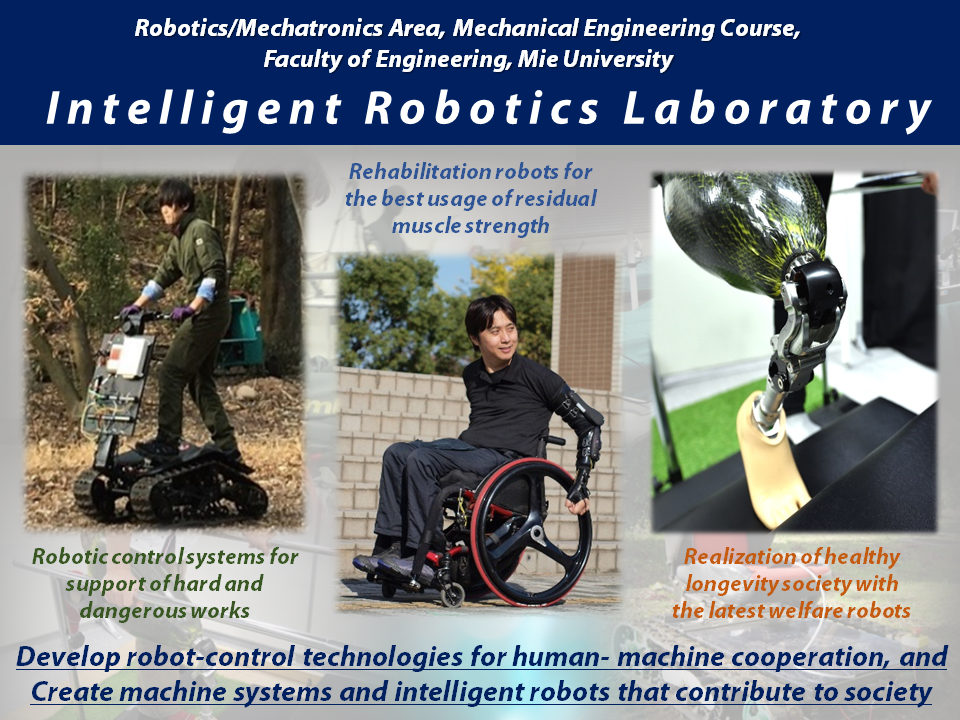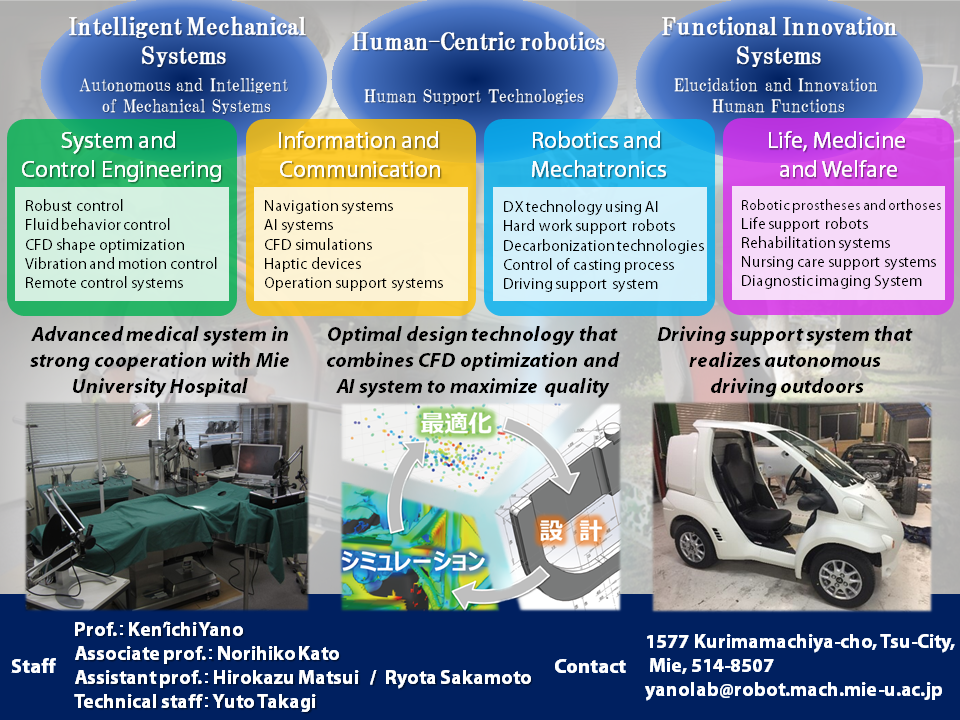Research Targets


Intelligent robots exist that have the human abilities of "judgment" and "learning". Human support robots provide backup in dangerous and difficult work environments with machine that realize symbiosis between humans and machines. In Intelligent Robotics laboratory, we aim to develop human-centric robot-control technologies that achieve human-machine cooperation, as well as to create machine systems and intelligent robots that contribute to society. Our research ranges from basic to practical studies. Basic studies include development of human-machine interfaces using biological signals and haptic systems that improve the force-sensing and touch-sensing abilities of humans. Practical studies include medical and welfare robots that aim to enable self-support and functional recovery for people with disabilities. Moreover, in order to support the super-aging society, we develop nursing care support systems and support robots to assist heavy labor work in factories.
We especially focus our efforts on industry-academia collaborative research. We study optimization in producing processes of Sokeizai such as auto parts and human support robots in the field of medical services and welfare by forming collaborative project teams with companies. In the future, we will further focus our efforts on: in the medical field, development of medical service and welfare robot technologies to overcome the challenges of the aging society that we will soon face; in the field of production, development of support technologies that provide world-class quality and performance. To achieve the goal of creating new industry, we will particularly focus on expanding our original technologies for the optimization of fluid behavior into the field of life and medical sciences, such as regenerative medicine and drug discovery process, as well as into the field of design optimization of molds and products, which are the core of manufacturing technology.

